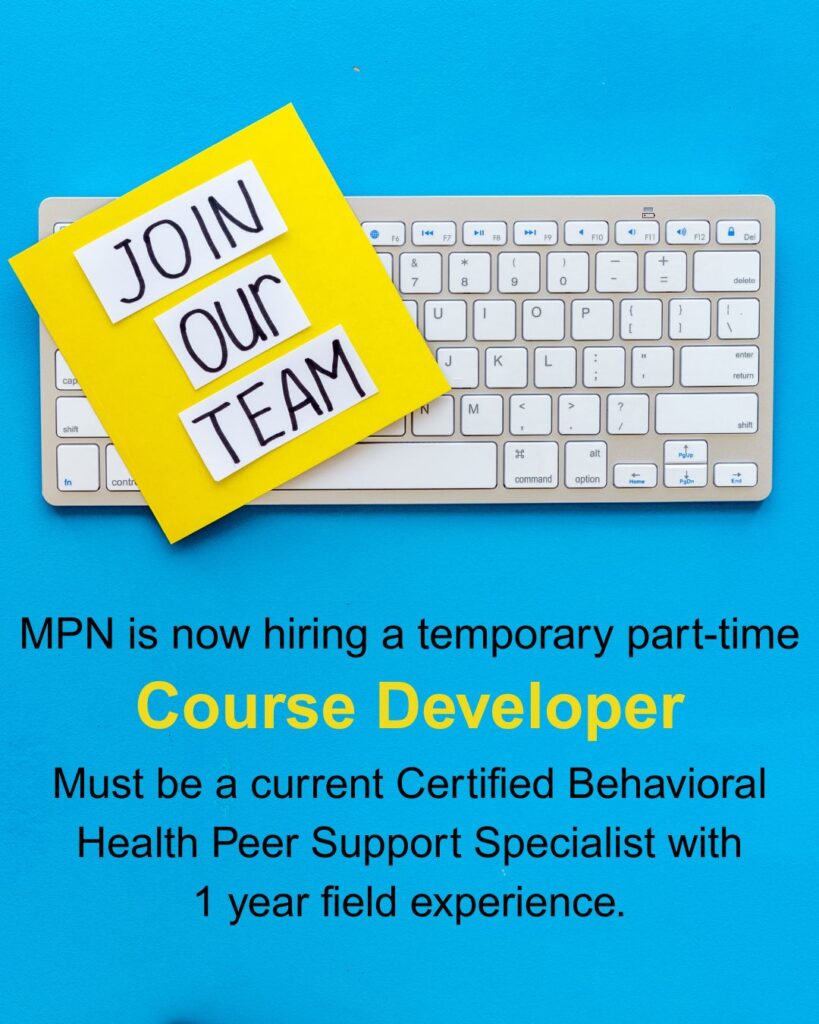We are a network of individuals who are on the path of recovery.
We identify as being in recovery from mental health, substance abuse and or addiction struggles. Together we share information, provide peer support, advocate with a united voice and improve the system. We come from places all across Montana, with different stories and experiences but together we make a difference. This is the Recovery Movement in Montana.



Realizing Recovery Blog
Social Wellness
Social wellness is defined as the ability to interact with others, build satisfying relationships, and maintain a strong support network. It encompasses various aspects, including effective communication, empathy, respect, and the capacity to create and sustain meaningful connections. Social wellness contributes to a sense of belonging, purpose, and fulfillment, which are essential for mental and emotional health.
Community and Peer Support for LGBTQIA+ People
Community and peer support are important components of recovery for LGBTQ+ individuals dealing with mental health issues. They provide a lifeline of understanding, acceptance, and encouragement and help mitigate the adverse effects of discrimination, family issues, and internalized stigma while fostering resilience and promoting well-being. Several organizations, including the Substance Abuse and Mental Health Services Administration (SAMHSA), PFLAG, GLAAD, and the Human Rights Campaign, emphasize the importance of such support systems in improving the mental health outcomes of LGBTQ+ individuals.
Recovery Jeans Art Project
Recovery Jeans are a great way to express your passion about recovery. Where what you believe in and experience the freedom of your truth being displayed. This project is so much fun because you get to wear your art.
Holistic Approaches to Mental Health
Mental health is not an isolated island; it’s a vast archipelago where emotional, physical, and spiritual realms intersect. Holistic approaches recognize this interconnectedness, emphasizing a comprehensive view of well-being. Let’s embark on a journey through holistic practices that nurture the whole person.
About Clifford Beers
May is Mental Health Awareness month. Once upon a time that meant something. May is now arthritis, walking, women’s health care month, better sleep month, Asian Pacific Islander, amyotrophic lateral sclerosis, and brain tumor awareness month. Those are all important issues to recognize. But mental health awareness month was started in 1949 by Clifford Beers of Mental Health America. MHA is the country’s oldest mental health advocacy organization. Clifford Beers (March 30, 1876 – July 9, 1943) was the founder of the American mental hygiene movement. (Wikipedia.com) He was a peer. He was the original peer supporter and advocate in the recovery movement. Clifford Beers was a ground breaker. Laying the foundation for organizations like Montana’s Peer Network.
Nurturing Teen Mental Health
As a parent navigating the challenges of raising a teenager in today’s fast-paced world, I have come to appreciate the significance of prioritizing mental health. With World Teen Mental Wellness Day just around the corner on March 2, it is an opportune time to reflect on ways we can actively support our teens’ emotional well-being throughout the year. In a world where one in seven adolescents faces mental health challenges, fostering awareness and reducing stigma becomes paramount, especially given the impact of the global pandemic on our teens’ mental health.
Revelations
I had a revelation recently and am still unsure how to correct this coping mechanism I acquired on my journey through life. I guess at this point acknowledging and identifying this within myself is currently the stage I am in. So, I thought this would be a good way to reflect through writing and see if any more revelations transpire my growth. “Carpe Diem” is a Latin term meaning “Seize the day”. This can inspire the idea of living in the moment or for today, so we aren’t wasting what little time we have on this earth worrying about what has already happened or what is to come.
Unconditional Love in Recovery
Unconditional love is something I have been blessed to have in abundance in my life. A year ago, my mother passed away, and about six months ago I had a realization. It hit me like a brick on a tearful ride home in the car. Part of the reason for my continual heartache in regards of losing her was that for 48 years, I was blessed with unconditional love on a daily basis. I was not just grieving the loss of my mother, her “being” and friendship, I was grieving for the loss of her constant unconditional love that kept me strong. I was craving it and wanted it back!
True Leadership
Growing up in a family of overachievers and natural-born leaders, allowed me to see what positive leadership can look like. Watching my grandpa Blackie Wetzel be such a humble person, set the tone for my dad and his siblings, to also be some amazing individuals too.
It wasn’t until I owned my own business at the young age of 19, that I realized that I too had some natural skills that gave me an edge over the competition.
The Transformative Power of Storytelling
In the rich tapestry of Native American traditions, storytelling stands as a sacred gift, a conduit for the transfer of wisdom, healing, and positive energies. Our Blackfoot people have a deep-rooted connection to tradition.
I share my life experiences and provide a compelling narrative as a Blackfoot woman in recovery. My story is not just a personal account; it’s a gift from Creator. There is a transformative power of sharing experiences, bridging the metaphysical and physical worlds by preserving true history for future generations. In the intricate dance between the past and the present, my journey unfolds, offering insights into the resilience that storytelling can foster.
Advocacy
Check out our new page dedicated to tracking state and federal bills, executive orders, and lawsuits.
 Standing up for what we believe is right, having a voice, making choices in recovery, and sharing our own recovery story are some of the things that make up advocacy and self-advocacy.
Standing up for what we believe is right, having a voice, making choices in recovery, and sharing our own recovery story are some of the things that make up advocacy and self-advocacy.
Let’s start with self-advocacy which refers to an individual’s ability to effectively communicate, convey, negotiate, or assert his/her own interests, desires, needs, or rights. It involves making informed decisions and taking responsibility for those decisions (Van Reusen et al., 1994).
Knowing yourself and your strengths, needs, and interests is the first step toward advocating for your rights. Once we begin to find our way on the path of recovery, we may want to begin to advocate for ourselves with those around us—peer supporters, friends, family, service providers, and doctors. These conversations may be difficult, but having them is vital to your recovery. Remember, you are the expert on yourself.
It may be that prior to getting on the path to recovery, others were making decisions for you or acting in what they believed to be your best interest. Now may be the time for you to let others know what you believe to be in your best interest. You may find yourself in the process of taking control and making decisions affecting your life and perhaps others’ lives. This process of self-determination means making informed choices, problem solving, setting and attaining goals—essentially being a self-advocate.
Advocacy or advocating for others may be something you are interested in doing. Advocating for another person isn’t about acting in a person’s perceived best interest, but it is standing with a person to ensure they are able to articulate and obtain what they want or need. Perhaps you may consider speaking up and advocating for various changes in the services in your community.
Here are a few examples of advocacy:
- Speak to your legislature or a special committee.
- Get involved with an advocacy group or organization.
- Share your recovery story to support others in recovery.
- Whether advocating for yourself, for others, for your community, or as part of an organization, advocacy is very self-empowering. You can make a real difference in your life, the lives of others, and even the community.
- Reach out to Montana’s Peer Network and share your recovery story on one of our “Recovery Talks” podcasts.
Advancing Advocacy Blog
Dehumanization of Vulnerable Populations
As people in recovery, we know that forcing people to comply with specific types of treatment rarely works. Treatment courts often have incredibly high “success” while people are in the program but those successes drop dramatically when there is no longer the threat of incarceration. Effective, long term recovery must be freely chosen and individualized. I wrote about this back in August but it is in the forefront of my mind again because of some statements made by a candidate for city commission in Great Falls.
Peer Support Advocacy Needed
As we head into the last quarter of 2025. There are ample opportunities to advocate for peer support. The Montana legislature wrapped up in the spring after passing the Family Peer Support certification bill. MPN and our sister organization Family Peers for Hope worked hard on rule recommendations to the Board of Behavioral health. We expect the public comment period to open any time now with proposed rules for certification of Family Peer Supporters. This provides us with a platform for advocacy and shaping of the new profession. In the Senate, yes, we know the Federal Government is in shutdown mode, but when they return before they go back on vacation for the winter break Senate bill 1132 includes a provision for family peer support as a service for family caregivers. This needs advocacy to further develop family support.




